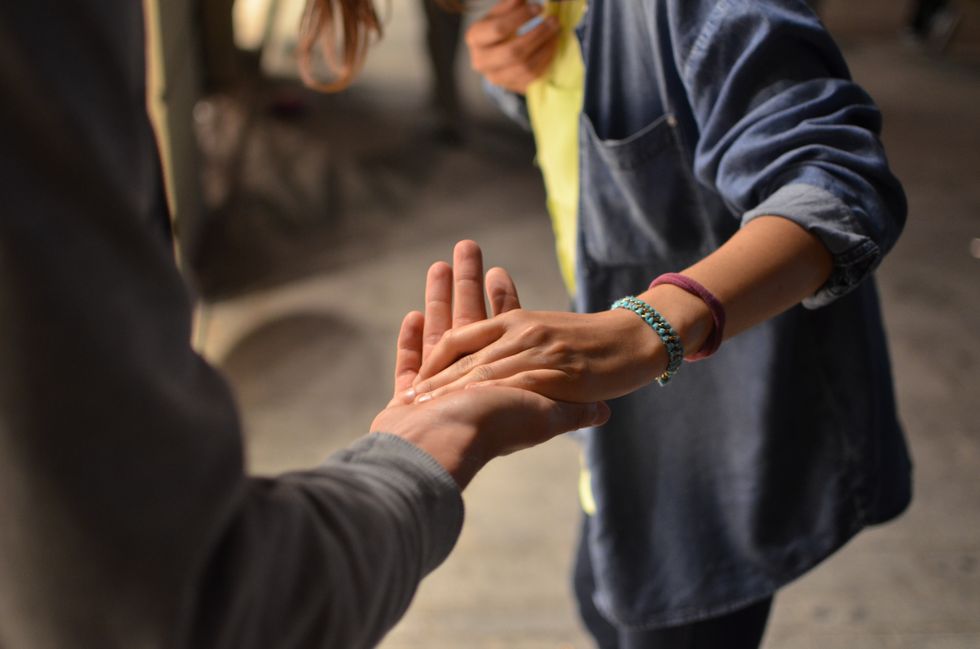Like many college students, I have spent a substantial amount of time in coffee shops. I haven’t been there to simply study or socialize; I have been conducting what I call “one-to-one relational meetings.” It’s a fancy word, but a simple concept. A “one-to-one” is all about sitting down with a fellow human being and uncovering their “why” – what motivates them to do what they do. But I don’t spend time uncovering people’s passions for nothing. The purpose of the one-to-one is to find a person’s self-interest so you can collaborate with them to create meaningful change. If you’re a young person who feels disillusioned with today’s social climate and you want to change the world, I encourage you to read on.
I began this practice after learning its magic through a class at the University of Minnesota – “Organizing for the Public Good” – two years ago. In the class, I learned that everyday people have the power to use “everyday politics” to navigate our complex world and to create change in their communities - without waiting for the government to do it for them. I also learned an alternative definition for “power.” Instead of something that everyone has to fight to get their hands on, I learned to embrace the Spanish translation of the word – poder, which literally means “to be able.” According to this definition, everyone can have power. It is simply the ability to get things done.
This power comes from three sources: money, ideas and people. For me, the most challenging source to draw from is people. In a time when we feel more isolated than ever with the influences of technology and the divisions of politics, establishing genuine, face-to-face relationships with others can be difficult. The one-to-one relational meeting has given me a tool to effectively build those human connections and use them in intentional ways. For example, I’ve had the opportunity to connect with an influential Colombian politician who wants to launch a youth empowerment initiative in South America in the next few years – all because I asked her to do a one-to-one with me.
So, what exactly is a “one-to-one”? It is a 40-50-minute meeting, set up by appointment, which usually takes place over lunch or a cup of coffee. How do you conduct the meeting? It’s simple: just ask the other person about their life – their family, their aspirations, their fears. Focus the majority of the conversation on the other person and ask insightful questions as it unfolds. The goal is to uncover the key moments in their life that have shaped who they are. These key moments will lead to where their self-interest, or passion, lies. Once you know a person’s self-interest, you can strategically collaborate with them to accomplish “win-win” outcomes in the future by working with them on projects that align their self-interest with yours.
I have learned a few key lessons during my one-to-one journey so far.
First, I have learned that one-to-ones can bridge political divides. Since I identify as liberal, I reached out to the president of College Republicans last year. When we sat down at Caribou to talk, we were both apprehensive. However, through asking him about his Wisconsin roots, his family and his love of writing, I learned that we were more alike than different. I discovered how to see him as something other than the “political enemy” – a fellow human being with legitimate experiences that have shaped what he believes. One-to-one meetings are the perfect way to deconstruct political divides in a time when we need to come together more than ever.
I have also learned that one-to-ones can be a crucial tool in building public power to create change. For example, through over 30 meetings last summer, I organized the “Citizen Student Movement” on campus, comprised of peers who are genuinely invested in using non-partisan politics to make a positive impact. To me, while money and ideas are necessary to generate change in the world, relationships with people are invaluable. One-to-ones have made me realize the power in human connection that we so often overlook.
I plan to continue using one-to-ones for the rest of my life. Apart from the lessons they have taught me, they have enriched my human experience. I have broadened my perspective on the world and engaged with people on a much deeper level than I normally would. The power of one-to-ones has touched my life in a significant way, and it can touch the lives of others, too. If more of us took the time to sit down and actually connect with the people around us, we could build the public love and humanity to come together and create a brighter future for everyone.
















